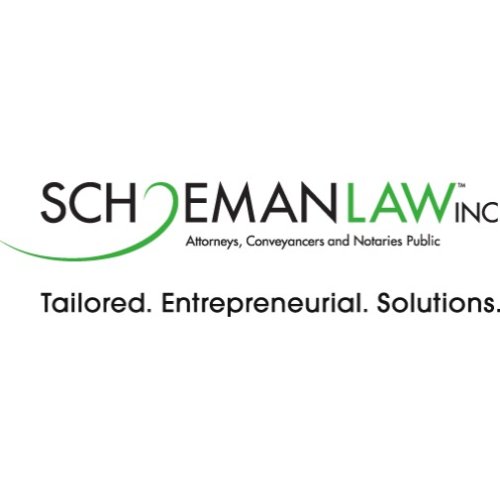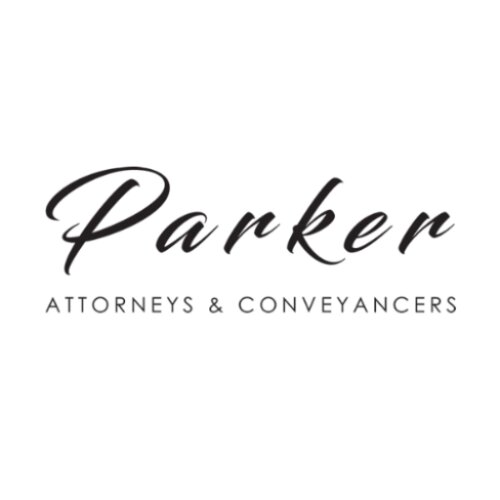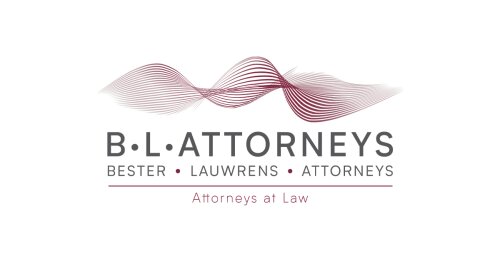Best Commercial Real Estate Lawyers in Cape Town
Share your needs with us, get contacted by law firms.
Free. Takes 2 min.
Free Guide to Hiring a Real Estate Lawyer
List of the best lawyers in Cape Town, South Africa
About Commercial Real Estate Law in Cape Town, South Africa
Commercial real estate in Cape Town, South Africa, encompasses properties used for business purposes, ranging from office buildings and retail spaces to industrial properties and large agricultural lands. The city, being a major economic hub, has a thriving commercial real estate market driven by its strategic location, diverse economy, and attractive tourist destinations. The legal landscape surrounding commercial real estate is complex and encompasses a variety of regulations from zoning laws to contractual agreements governing property transactions, leases, and development projects. Understanding the nuances of these regulations is crucial for anyone involved in buying, selling, or leasing commercial properties in Cape Town.
Why You May Need a Lawyer
There are numerous situations where you might require legal help in commercial real estate:
- Lease Agreements: Whether you're a landlord or a tenant, drafting or reviewing lease agreements can be complex and often necessitates legal advice to ensure terms are fair and legally sound.
- Property Transactions: Buying or selling commercial property involves intricate legalities including due diligence, contract negotiation, and compliance with local laws.
- Zoning and Land Use Issues: You may encounter zoning restrictions or need to obtain land use permits, which can be challenging without professional legal guidance.
- Development Projects: Real estate development projects require navigating environmental regulations, building codes, and planning approvals, often necessitating legal expertise.
- Dispute Resolution: Conflicts between landlords and tenants, or over property boundaries and rights, might arise and require mediation or legal intervention.
Local Laws Overview
Cape Town's commercial real estate is governed by both national and local regulations. Key aspects include:
- Zoning Regulations: These dictate the permissible use of land and properties in different areas, impacting where certain types of businesses can operate.
- Property Tax Laws: Understanding the rates and obligations regarding property taxes is essential for property owners to ensure compliance.
- Environmental Compliance: Properties must adhere to national environmental standards and local by-laws to prevent environmental degradation.
- Land Use Management: The Spatial Planning and Land Use Management Act (SPLUMA) outlines procedures for land development and use.
- Building Regulations: Construction and renovation projects must comply with the National Building Regulations and Building Standards Act.
Frequently Asked Questions
What types of properties are considered commercial real estate?
Commercial real estate includes office buildings, retail centers, warehouses, and manufacturing facilities. It differs from residential real estate, which is used for living purposes.
How do zoning laws affect my commercial property purchase?
Zoning laws determine what activities can be conducted on a property. Before purchasing, ensure the property's zoning aligns with your intended business use.
What is the process for resolving a dispute between a landlord and a tenant?
Many disputes can be resolved through mediation. If unresolved, they may require legal action, such as arbitration or court litigation.
What are the tax implications of owning commercial property in Cape Town?
Owners must pay property taxes and potentially capital gains tax upon sale. Consulting a tax professional can provide specific insights.
Do I need a permit to alter a commercial property?
Yes, alterations typically require permits to ensure compliance with building codes and regulations. Consult with local authorities before commencing any modifications.
Is it necessary to conduct an environmental assessment before purchasing property?
It's advisable, especially if the property's history suggests potential contamination. An environmental assessment can uncover issues and liabilities.
How is commercial property value appraised?
Appraisers consider factors like location, market conditions, and property features. A professional appraisal is recommended when buying or selling.
What should I include in a commercial lease agreement?
A comprehensive lease should detail terms of rent, duration, responsibilities for maintenance, and procedures for dispute resolution.
Can I convert a residential property into a commercial one?
It might be possible, but you'll need to comply with zoning laws that may require applying for a rezoning or consent use from the municipality.
What legal steps must be taken for a commercial real estate acquisition?
The process involves due diligence, contract drafting, securing financing, and transferring ownership rights through conveyancing and registration.
Additional Resources
For further assistance, consider reaching out to:
- Local Real Estate Agencies: They provide insights and listings for commercial properties.
- Cape Town Municipality: Offers resources and information on land use, zoning, and building regulations.
- South African Property Owners Association (SAPOA): Represents commercial and industrial sectors, providing industry insights.
- Western Cape Government: Provides guidelines and regulations on property taxation and assessments.
Next Steps
If you require legal assistance in commercial real estate:
- Identify the specific issue or transaction you'll need assistance with, such as drafting contracts or resolving disputes.
- Seek referrals or search for reputable law firms in Cape Town specializing in commercial real estate law.
- Schedule a consultation to discuss your needs, understand legal fees, and assess the lawyer’s approach and experience.
- Consider engaging a lawyer to ensure all transactions comply with complex local regulations and avoid potential legal pitfalls.
Lawzana helps you find the best lawyers and law firms in Cape Town through a curated and pre-screened list of qualified legal professionals. Our platform offers rankings and detailed profiles of attorneys and law firms, allowing you to compare based on practice areas, including Commercial Real Estate, experience, and client feedback.
Each profile includes a description of the firm's areas of practice, client reviews, team members and partners, year of establishment, spoken languages, office locations, contact information, social media presence, and any published articles or resources. Most firms on our platform speak English and are experienced in both local and international legal matters.
Get a quote from top-rated law firms in Cape Town, South Africa — quickly, securely, and without unnecessary hassle.
Disclaimer:
The information provided on this page is for general informational purposes only and does not constitute legal advice. While we strive to ensure the accuracy and relevance of the content, legal information may change over time, and interpretations of the law can vary. You should always consult with a qualified legal professional for advice specific to your situation.
We disclaim all liability for actions taken or not taken based on the content of this page. If you believe any information is incorrect or outdated, please contact us, and we will review and update it where appropriate.















